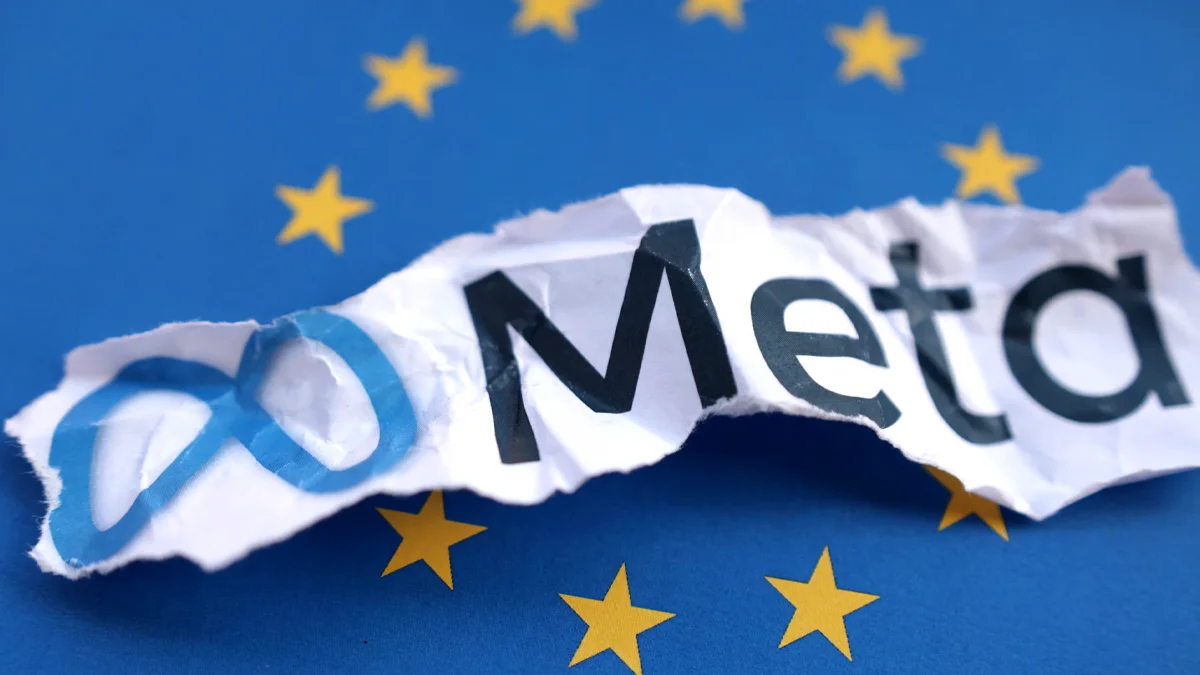Necessary Always Active
Necessary cookies are required to enable the basic features of this site, such as providing secure log-in or adjusting your consent preferences. These cookies do not store any personally identifiable data.
|
||||||
|
||||||
|
||||||
|

Regulators in the European Union have warned that Facebook and Instagram owner Meta platforms could face daily fines should the watchdog find its pay-or-consent model to be non-compliant. According to Reuters, the social media giant proposed the Meta pay or consent model in response to an antitrust order issued in April this year.
The European Commission issued an antitrust warning to Meta two months after imposing a $234 million fine on the social media giant. The fine was a penalty for the breach of the Digital Markets Act that is aimed at curtailing the power that big techs hold. Fines for failing to comply with the Digital Markets Act can be as high as 5% of the tech giant’s average daily turnover globally.
Meta’s pay-or-consent model was first introduced in November 2023. According to executives in the EU, the model breached the Digital Markets Act from November 2023 to November 2024, when Meta made privacy changes in the EU. These changes caused the model to utilize less personal data in targeting ads. Following these reviews, the European Commission has been scrutinizing the model .
In Europe, Meta’s pay subscription model allows Instagram and Facebook users who agree to be tracked to access a free service that is financed through ad revenue. The model also gives users the option of paying for an ad-free service. According to the EU competition watchdog, Meta can only make limited adjustments to the pay-or-consent model that it introduced in November 2024.
“The Commission cannot confirm at this stage if these are sufficient to comply with the main parameters of compliance outlined in its non-compliance Decision. With this in mind, we will consider the next steps, including recalling that continuous non-compliance could entail the application of periodic penalty payments running as of 27 June 2025, as indicated in the non-compliance decision,” an EU Commission Spokesperson said.
Meta has reacted to the comments made by the EU Commission regarding its pay-or-consent model. The social media giant claims that the Commission has been shifting goal posts during engagements conducted in the last two months. Meta has also accused the Commission of discriminating against it.
“A user choice between a subscription for no ads service or a free ad supported service remains a legitimate business model for every company in Europe – except Meta. We are confident that the range of choices we offer people in the EU doesn’t just comply with what the EU’s rules require – it goes well beyond them,” a Meta spokesperson said.
The EU regulator dismissed the discrimination claim arguing that the Digital Markets Act applies to all big techs equally as long as they do business in the region. The watchdog said that the law applies to all large digital firms irrespective of their location of incorporation or who holds the largest stake in them.
“We have always enforced and will continue to enforce our laws fairly and without discrimination towards all companies operating in the EU, in full compliance with global rules,” the Commission spokesperson said.
The EU’s antitrust warning highlights the commitment by the EU Commission to create a level playing ground for smaller rivals and its rising crackdown on big techs despite criticism by the US. Previously, the US has criticized EU’s tough rules that it claims target American tech giants.
Since the Digital Markets Act came into effect, the EU has gained new powers to crack down on major tech companies that it calls gatekeepers in the digital world. The EU requires these companies to follow strict rules that are aimed at preventing data misuse while protecting fair competition and consumer choice.